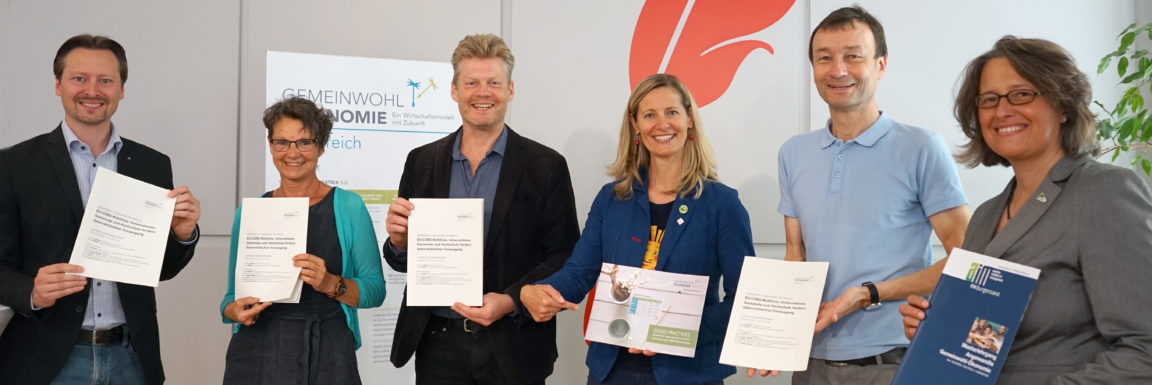The Common Good Economy responded to the invitation of the Federal Ministry of Justice to comment on the proposal of the EU Commission for the revision of the Directive on Non-Financial Reporting (CSRD). A broad alliance of 86 companies, 3 municipalities and the University of Applied Sciences Burgenland expresses extensive criticism of the draft of the guideline and calls for Austria to proceed. All companies should be required to report, the reports should be comparable, externally audited and companies with good sustainability performance should be better off through legal incentives.
A broad and growing alliance of companies, municipalities and educational institutions went public this week in Vienna to call for a significant improvement in the EU directive on non-financial reporting. On April 23, the Federal Ministry of Justice invited interested parties to submit their “comments” on the draft to the EU Commission. That deadline ended on June 15th. The GWÖ movement basically welcomes the further development of the current NFRD into the Corporate Sustainability Reporting Directive, but still sees a number of weaknesses that could either be remedied in the further EU legislative process or through an ambitious implementation in Austria - through a preliminary process Of Austria.
Here are the 6 suggestions for improving the economy for the common good:
- The obligation to report on sustainability should be on all companieswho also the financial reporting subject to be expanded.
- Social and ecological standards should be direct from the legislators or, alternatively, be defined and determined by a multi-stakeholder body, using the most ambitious reporting frameworks.
- The Common good balance is one based on scientific criteria exemplary sustainability report standard, which should flow into the EU directive and at least into the Austrian implementation law
- Sustainability reporting is supposed to quantified and comparable results to lead, the visible Appear on products, websites and in the company register so that consumers, investors and the general public can get a holistic picture of companies and make informed decisions.
- Like the financial reports, the content of sustainability reports should externally audited and with the test note "sufficient security" (reasonable assurance).
- The sustainability performance of companies should be legal incentives be linked in order to use market forces to promote social values and to give responsible companies a competitive advantage, e. B. through public procurement, business development or taxes.
From left to right: Mayor Rainer Handlfinger, Astrid Luger, Christian Felber, Manuela Raidl-Zeller, Erich Lux, Amelie Cserer
The Common Good Economy Movement submitted the statement signed by 15 companies, 86 municipalities, 3 university and 1 prominent private individuals to the Ministry of Justice on June 10th.
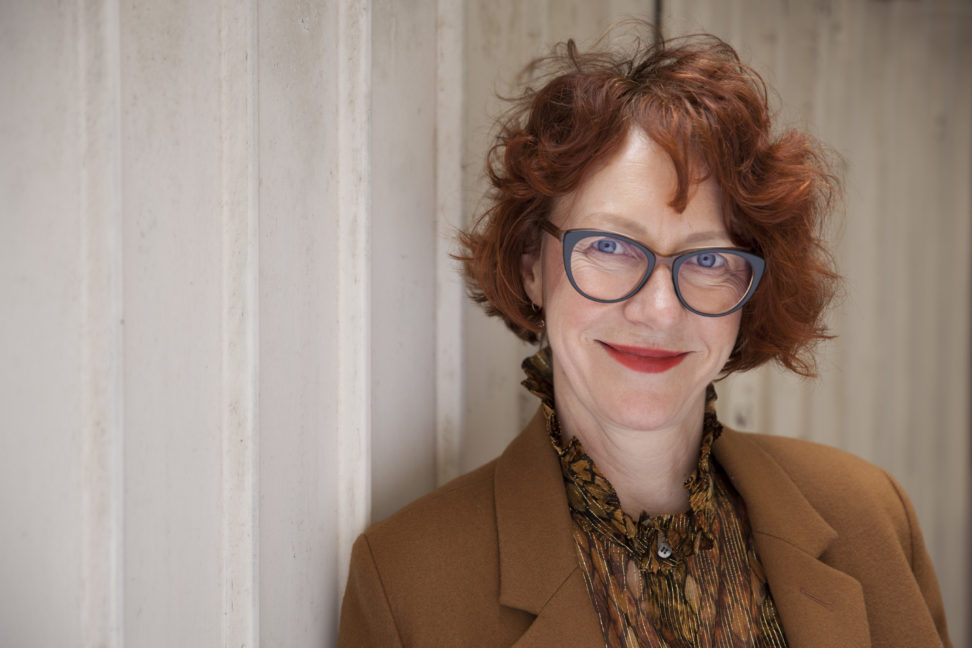
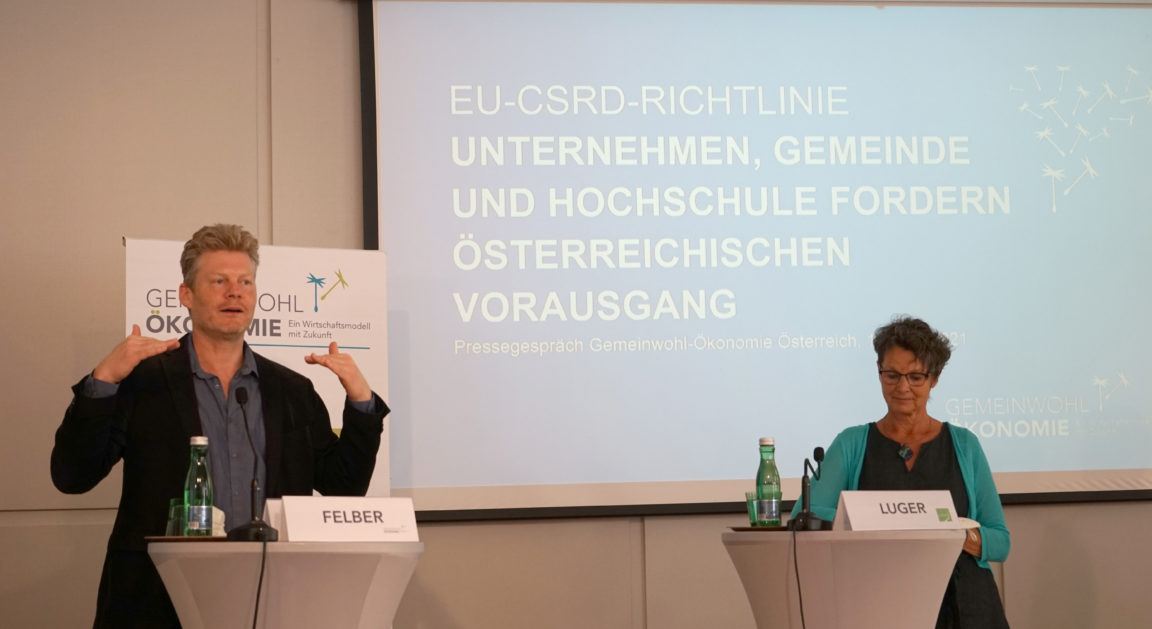

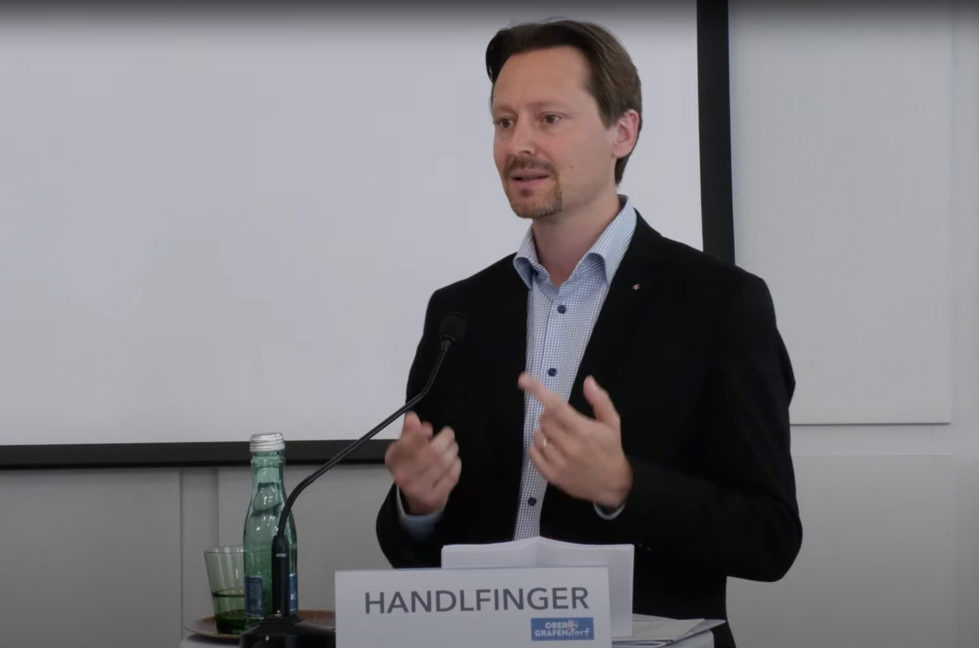
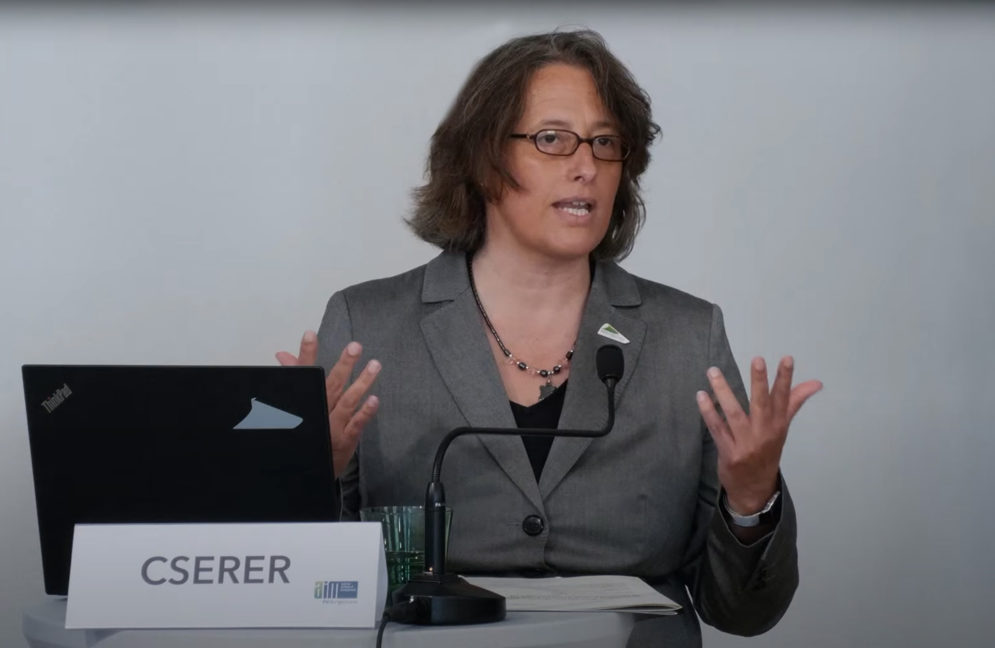
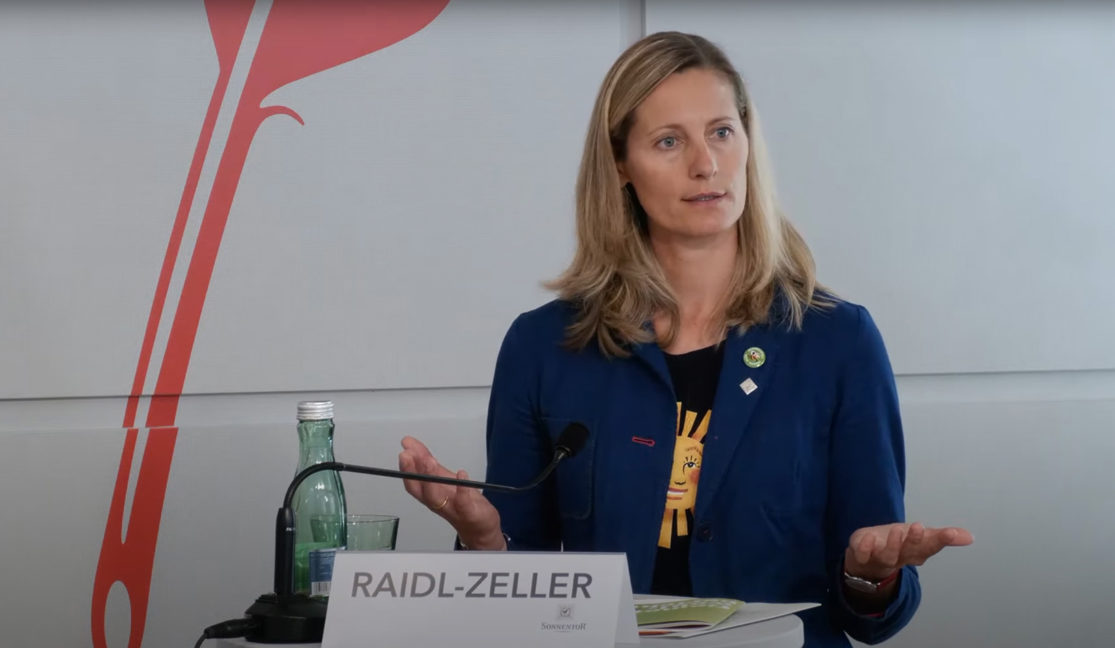
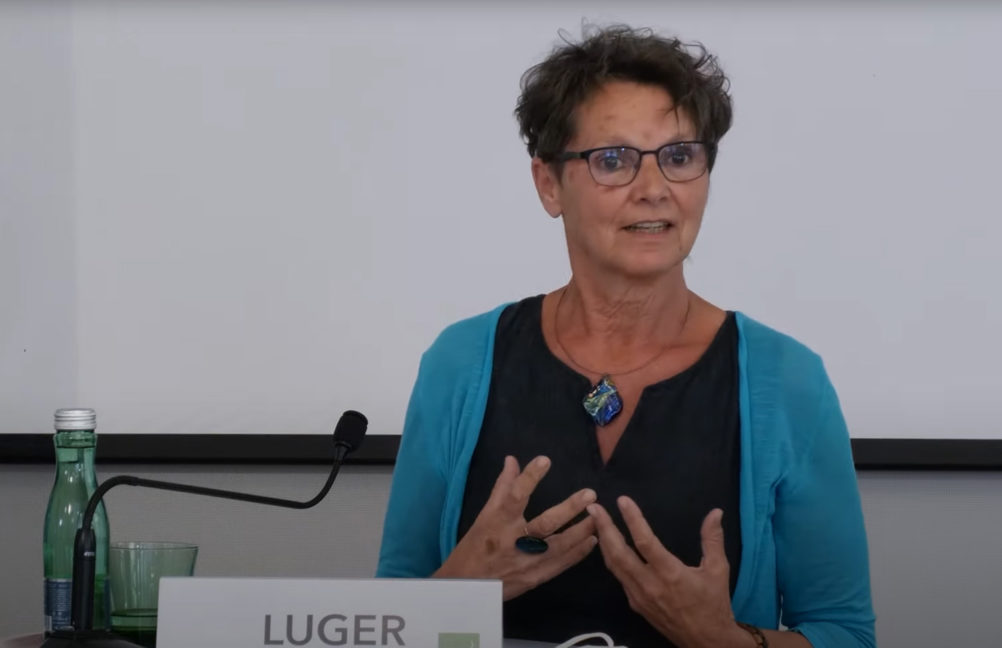
Information:
About the common good economy
The global common good economy movement began in Vienna in 2010 and is based on the ideas of the Austrian publicist Christian Felber. The GWÖ sees itself as a trailblazer for social change in the direction of responsible, cooperative cooperation within the framework of ethical management. Success is not primarily measured in terms of financial indicators, but rather with the common good product for an economy, with the common good balance sheet for companies and with the common good test for investments. The GWÖ currently comprises around 11.000 supporters worldwide, 5.000 active members in 200 regional groups, around 800 companies and other organizations, over 60 municipalities and cities as well as 200 universities worldwide, who spread, implement and further develop the vision of the economy for the common good. A GWÖ chair was established at the University of Valencia in 2017, and in Austria the Genossenschaft für Gemeinwohl In 2019, a public welfare account was launched, and in autumn 2020 the first three cities in the Höxter district (DE) were accounted for. The International GWÖ Association, based in Hamburg, has existed since the end of 2018. In 2015, the EU Economic and Social Committee adopted a self-initiated opinion on the GWÖ with an 86 percent majority and recommended its implementation in the EU.
Inquiries to: [email protected]. You can find more information on www.ecogood.org/austria.
This post was created by the Option Community. Join in and post your message!



